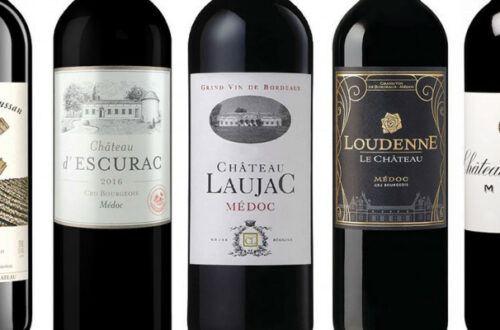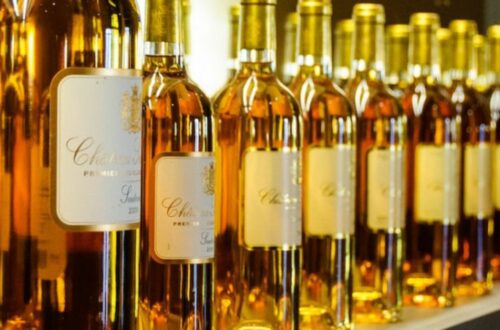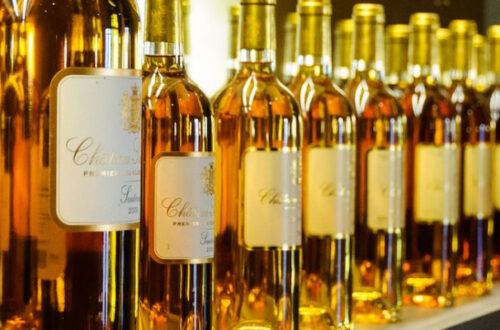
Is Bordeaux wine healthy?
In France, winemakers love to enhance the terroir effect. It means they want to the terroir (soil and climate) to be “tasted” in their wines. For that, they minimize the impact in the wine making process.
Moreover, a trend of natural wine has been spreading throughout the years. It means adding nothing to the wine during the winemaking process and letting the wine be.
In Bordeaux, we even have the vintage effect. Weather can vary a lot between two years and many winemakers want their wines to express the year they had.
With this minimized impact, we can ask ourselves the following question: is Bordeaux wine healthy?
When wine replaced water in France
During the second world war, in France especially, wine was hugely promoted under the Vichy regime. Wine was even said to be able to replace meals, with all its benefits.
For a long time, wine was the go-to drink and replaced water. At that time, in restaurants, the guests would have a Bordeaux wine AND a Beaujolais, for example, to replace water (at least, according to one of greatest French chef, Bernard Loiseau)
Wine was also given to children at school.
What makes a wine healthy?
In wine, there is manganese, potassium, ion, phosphorus and vitamin B6. It also contains magnesium, which is a mineral that helps lower blood pressure and blood sugar levels. By decreasing these levels, it diminishes the risk of heart disease, diabetes and strokes.

Wine also contains a lot of antioxidants which prevents cell damage.
Moreover, a white wine contains 120 calories for a 150 milliliter glass. With its properties, it helps fight against Alzeihmer’s disease. Dry white wine will also help improve lung health and protects cells from cancer.
Red wine has more calories (127) but has also higher vitamin and mineral content. It contains 10 times more polyphenols, which have antioxidant properties.
Is Bordeaux wine healthy then?
What about Bordeaux then?
Bordeaux has dry and sweet white wines as well as red wines. They also produce rosés which have fewer calories than red and some of the benefits of red wines, so it’s a good average.
Dry white wines (without residual sugar) will be highly preferred of course to any wine who contains sugar (off-dry to sweet).
However, usually, it’s the red wines with high tannins that are preferred. Why? High tannins means grapes had thicker skins which means they had more polyphenol in them, which as we’ve seen just earlier is great for your health.

Bordeaux red wines are usually a blend of Merlot and Cabernet Sauvignon, with the partition evolving depending on the Bank you’re in. If your want to know more about Bordeaux wines, I have a post which tells your all your need to know to have a first clear vision of this beautiful wine region.
Back to our health benefits for Bordeaux wines, blend of Merlot and Cabernet Sauvignon.
Merlot has high levels of resveratrol and procyanidin, types of polyphenols, which helps decrease cholesterol and promotes cardiovascular health.
Cabernet Sauvignon is made of flavonoid (another compound of polyphenol) which stimulated the protein that plays a role into cell health.
Like all good things…with moderation
So Bordeaux wine has many benefits as we’ve seen. However, let’s not fool ourselves, wine also has alcohol, which can NOT be considered good for you.
Alcohol increases risk of high blood pressure, liver and pancreas disease.

So, how can your enjoy the health benefits in Bordeaux wine without suffering from the drawbacks? Well, the answer lies in the quantity your drink.
It is considered best for a woman to have 1 to 1,5 glasses of alcohol, and for men, 1-2 glasses per day, with a two-day (in a row) stop. Our body needs two days to eliminate toxins (ie alcohol in our case)
Like me, I guess your enjoy opening up a bottle of wine and it’s then quite easy to get tempted to drink more than the recommended amount.
Conclusion
Is Bordeaux wine healthy? Calling it healthy might be a bit of an overstatement…
Wines today, with the climate change, tend to have even more alcohol. And alcohol “encourages” all that polyphenols try to avoid.
Let’s say, Bordeaux wine does have health benefits…if consummated according to the recommended amount. And it also depends on the winemaker.
If your plan on drinking wine to enjoy its health benefits, I would recommend natural wines that have no additional compounds.
What are your thoughts on that?








